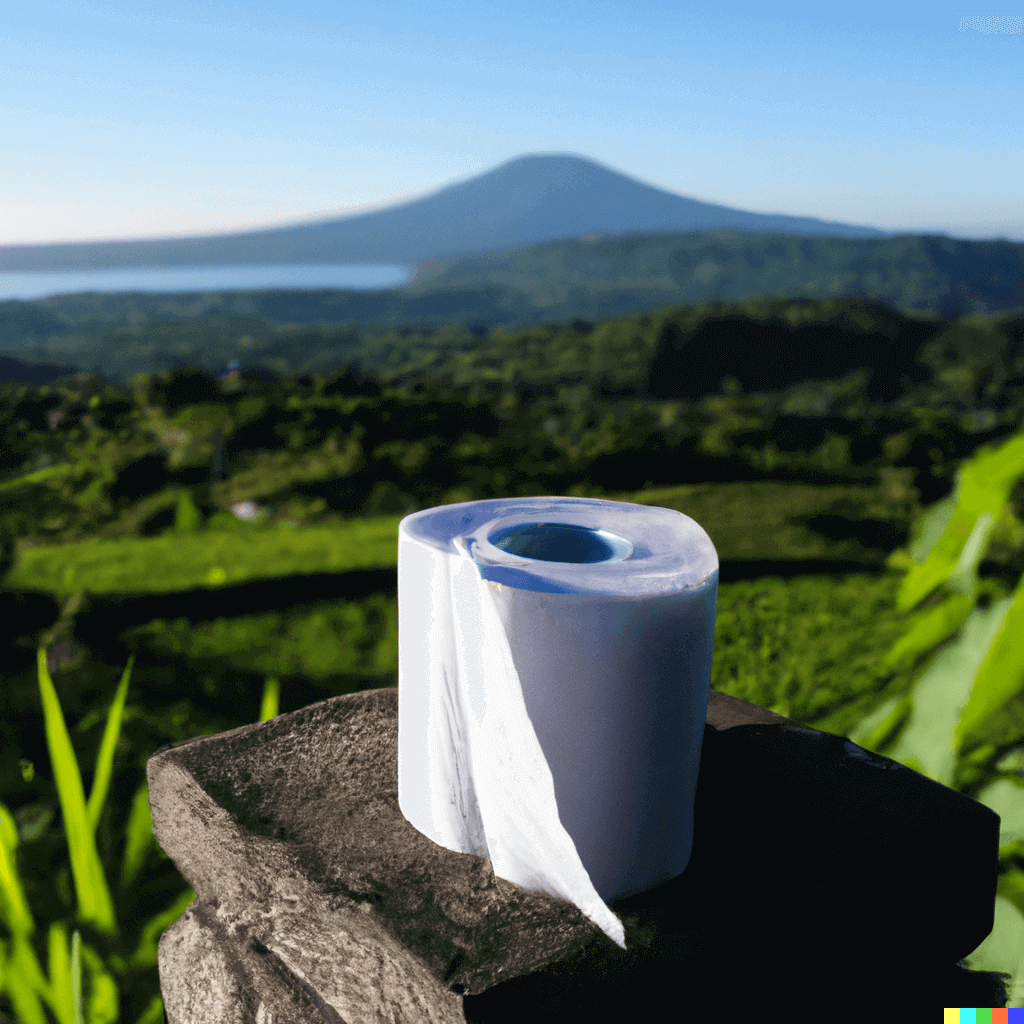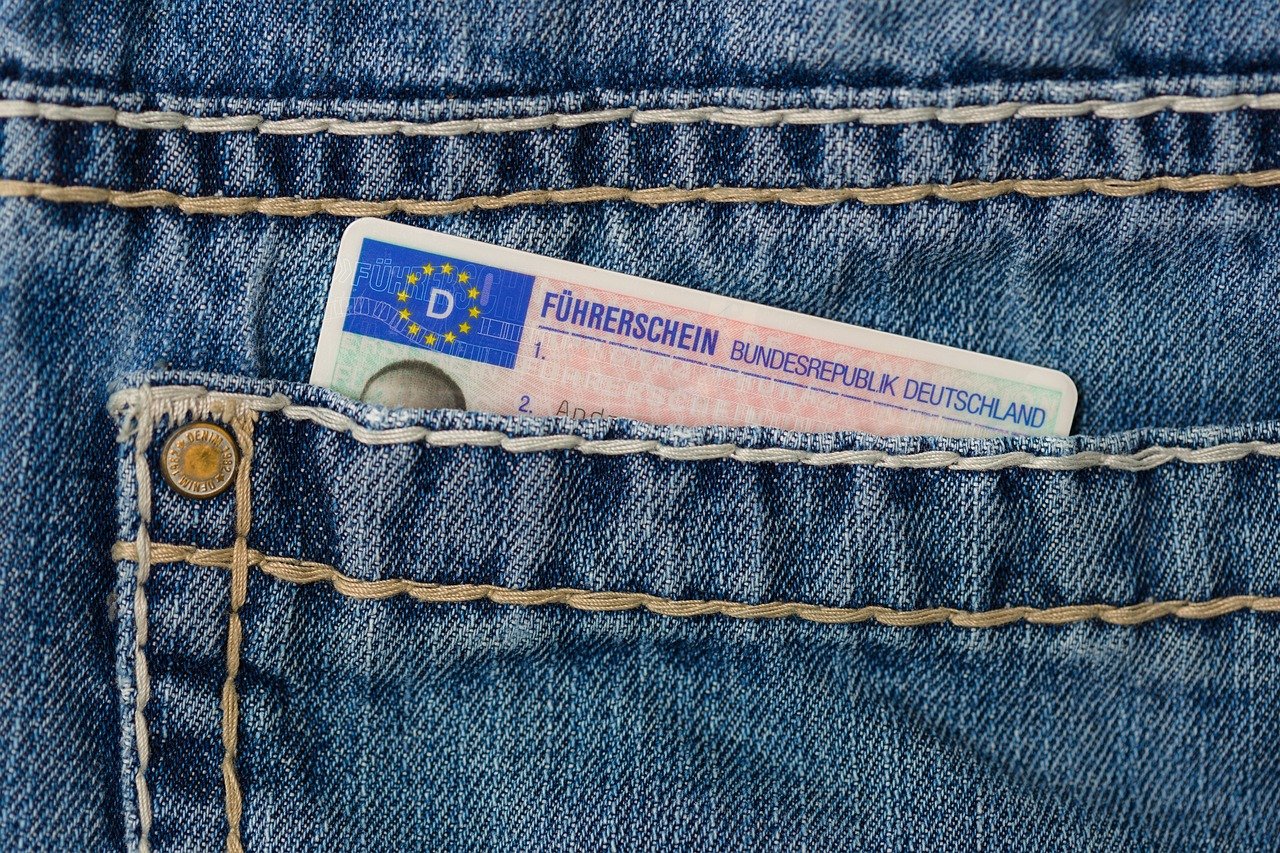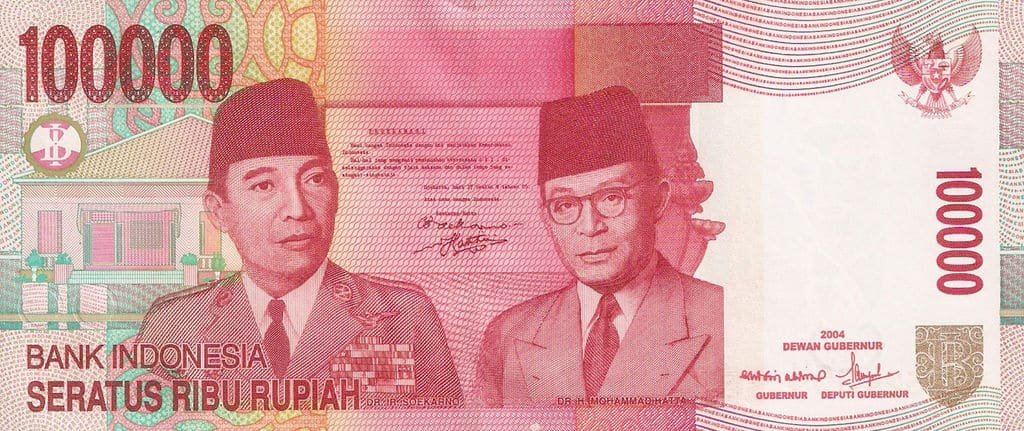Does Bali Use Toilet Paper? Be Prepared With Our Toilet Tips
Toilet paper is top of mind for visitors to Bali. Here’s proof it exists!
Table of Contents Show
Introduction
If you're planning a trip to Bali, you may have heard rumors about the toilet paper situation.
So, does Bali have toilet paper? The answer is not as straightforward as you might expect.
In this article, you'll learn whether all hotels and villas provide toilet paper, where you can buy it, and when you should bring your own.
Related:
Table of Contents Show
1. Does Bali Use Toilet Paper?
When it comes to the availability of toilet paper in Bali, it's a mixed bag.
While toilet paper is present in many toilets, it may not always be readily available.
In some areas, locals use a water spray or a bucket of water for cleaning instead of toilet paper.
Here's a quick summary of where you will or will not find toilet paper in Bali:
Infographic: Does Bali use toilet paper? Where you’ll find it, and can you flush it?
Hotels and Villas - Yes
Tourist Restaurants - Yes
Airport - Yes
Major tourist attractions - Yes
Shopping centres - Maybe
Local Restaurants/Warungs - No
Temples and other public toilets - No
Going on a tour or day trip – No
Visiting a Balinese homes - No
If you go to local restaurants or use public toilets in places like temples, beaches, waterfalls etc., there will probably not be toilet paper. And if you are lucky to be invited to a Balinese village home it's unlikely they will have toilet paper.
Emergency toilet paper map for Bali
Before we go further, if you are away from your hotel and hit a toilet emergency, we got you covered.
We made this map that will guide you to the nearest Circle K mini-mart for toilet paper, tissues, hand sanitiser and wipes. We are not sponsored by them, and there are others - it's just that they are everywhere.
Why not bookmark this page or save this map to your Google Maps faves (which you can then use to navigate) in case you get caught short and need more toilet paper in a rush.
Do all Bali hotels provide toilet paper?
While most western tourist hotels do provide toilet paper for their guests, it's still a good idea to check beforehand if you are staying in 2-star and 3-star accommodation or homestays. In some more remote areas, the availability of toilet paper may be limited, so bringing your own is always advisable.
It's also important to note that many Indonesian locals in Bali opt for water sprays or buckets of water over toilet paper for cleaning. So, hotels that cater more to a local market may not have toilet paper in the room, but if you ask they may have some available for western guests.
Can you buy toilet paper in Bali?
Yes. Toilet paper is readily available in most supermarkets and convenience stores (like the Circle-K stores on our map) on the island. So, you don't need to bring it on the plane from your home. Just make sure you are carrying Bali currency to be able to snap up a few rolls when the crisis hits!
When should you bring your own toilet paper?
If you plan on visiting temples, waterfalls, or more remote-location water sports like river rafting or climb a volcano like Mount Batur you definitely want a roll of loo paper in your backpack!
You can almost guarantee that toilets in these locations will not supply toilet paper and if the odd one does, it will run out. In places like Tirta Empul Temple in Tampaksiring you can expect to be one of thousands of local worshipers and tourists on any day - make sure you're the one with loo paper!
What toilet items to bring with you to Bali
When packing for your trip to Bali, it's important to consider bringing a few essential toilet items. While toilet paper is widely available in many areas of Bali, it might be wise to bring and carry the following extras with you:
Toilet Paper
Wet wipes
Hand sanitizer
A small towel for drying your hands
These items will also come in handy when using traditional Balinese bathrooms, which often feature a bucket of water instead of a sink.
Are flushable or wet wipes okay to use in Bali?
Flushing so-called 'flushable' wipes in Bali is not recommended, because the sewage system is not designed to handle them and can cause blockages. Instead, it's best to dispose of them in a waste bin.
Hand sanitizing wipes are useful for cleaning toilet seats, but they should also be disposed of in a bin and not flushed down the toilet. A pack of 56 wet wipes can last up to a month, even if you have stomach issues during your stay in Bali.
Do you have Bali Belly? Are you worried about getting it? Read our articles:
2. Can You Flush Toilet Paper in Bali?
Bali's plumbing system is not designed to handle toilet paper, so it is generally not recommended to flush it.
However, most hotels and many villas now have bio-septic systems that can cope with toilet paper, so in these cases, it is usually safe to flush. As a general rule, if you are unsure or staying outside of hotels and villas (for example, in a homestay, or pondok wisata), it is best to dispose of used toilet paper in the bin provided next to the toilet.
Where does toilet paper go when you flush it in Bali?
Proper waste management is crucial in Bali, especially when it comes to toilet paper. Most septic systems outside of hotels and villas are just pits that could quickly fill up with toilet paper, causing overflow problems - often directly into the delicate environment.
So, where does the used toilet paper go? It’s disposed of in the bin next to the toilet. The contents of these bins are collected regularly and taken to landfills to decompose or incineration facilities for disposal.
By using the bin provided in restrooms and not flushing toilet paper down the toilet, visitors can contribute to preserving Bali's natural beauty and infrastructure.
Septic toilets in Bali and what can you flush?
In Bali, most toilets use septic pit systems instead of traditional sewer systems. This means the waste is going into a pit in the garden of the restaurant, shop or home. These systems require special care to avoid clogging and damage. Flushing anything other than toilet paper can cause blockages and backups in the septic system.
Therefore, it's essential to dispose of sanitary napkins, flushable wipes, and other non-toilet paper items in a bin next to the toilet instead of flushing them. Even at hotels and villas with larger pipes and bio-septic systems, these items should not be flushed as they can clog the system leading to costly repairs.
3. The Cultural Norms of Balinese Traditional Toileting
When it comes to toileting in Bali, cultural norms can be quite different from what Western tourists are used to. The traditional Balinese toilet is a squat toilet, which can be challenging for those accustomed to seated toilets.
After toileting, it’s common practice to use a small hose or bucket of water and scoop to clean oneself with water, rather than toilet paper.
Don't panic, however, hotels, resorts, and tourist-facing restaurants in Bali offer Western-style toilets, and most provide toilet paper as well.
Water cleansing vs. toilet paper
In Bali, as in many parts of the world, they do not use toilet paper. Instead, water is used for cleansing. In Bali, this practice is natural and is rooted in Balinese Hindu beliefs that view water as a purifying element.
While some tourists may find this method of cleaning uncomfortable or unfamiliar, it has several benefits. Firstly, it reduces waste and saves trees, making it more environmentally friendly than toilet paper. Additionally, many people in the world believe water cleansing can be more effective in maintaining personal hygiene and cleanliness.
Left hand vs. right hand wiping.....and eating!
It's important to note that in Balinese culture (and many other cultures), the left hand is considered unclean because it is the hand used for toileting and should not be used for eating.
Consequently, it is recommended to use the right hand for eating if you are invited to a Balinese home or ceremony and are not offered a knife and fork.
4. Understanding the Toileting Infrastructure
When it comes to toileting in Bali, understanding the infrastructure is really helps to understand why things are done a certain way.
Most hotels and some villas have proper bio-septic systems that can process waste and toilet paper. These systems are strictly regulated by the government, with regular inspections. The Balinese are very focused on protecting their environment when it comes to raw sewage.
However, most restaurants, shops, galleries, home stays etc., do not have such systems, and their toilets are just pits. In rural areas and temples, septic pits and squat toilets are common. Using a squat toilet can be challenging, so it might be wise to try to find a seated one (just ask; the Balinese will not be embarrassed) or do number two's before your trip starts, if you can.
Squat toilets vs. seated toilets
Squat toilets are a common fixture in many parts of Southeast Asia and require a different technique for use. While they may seem daunting at first (balance and keeping clothing clean are challenges for first-timers), with practice, most people find squatting to be comfortable and natural.
Seated toilets, on the other hand, offer a more familiar experience but may not always be as hygienic as their squat counterparts.
The role of the bucket in Bali toilets
When it comes to toileting in Bali, the use of a bucket of water with a ladle is quite common. This approach is preferred over toilet paper for its hygienic and eco-friendly benefits. Not only does using a bucket instead of toilet paper help reduce waste and protect the environment, but it also eliminates the risk of clogged pipes and septic systems.
While some may find it challenging or uncomfortable to use at first, many people quickly adapt to this method and even prefer it over traditional toilet paper.
What is a 'bum gun' and how to use it?
When it comes to cleaning up after using the toilet, many visitors to Bali may be surprised to encounter a ‘bum gun’. Also known as a bidet spray, this handheld nozzle is commonly used in Southeast Asia for personal hygiene. Using a bum gun can be more hygienic and eco-friendly than toilet paper, and it's important to use your left hand to wipe if necessary.
To use a bum gun, aim it where you want to clean and squirt; the water pressure does most of the work for you. While it may take some getting used to, many travelers find that this method is both effective and efficient.
How to flush a Bali toilet without a cistern
Toilets in Bali can vary greatly, from modern flush toilets to traditional squat toilets. However, some of these toilets do not have a cistern and instead rely on a bucket of water to flush waste. If you encounter one of these toilets, use the scoop or jug provided to flush the toilet. Keep adding scoops of water until the waste is gone.
By the way, a toilet that does not flush is a giveaway that the waste is going in a pit and not a bio-septic system. So, don't throw toilet paper in the toilet because it can clog the plumbing system and fill the pit. Instead, dispose of used toilet paper in the bin provided next to the toilet.
Proper aim and clean-up techniques
When using the bathroom in Bali, proper aim and clean-up techniques are crucial for maintaining hygiene, especially since most bathrooms rely on a hose or bucket of water instead of toilet paper. To avoid splashing or creating a mess, aim the water or bucket carefully. After using the bathroom, it's important to thoroughly clean yourself with water and soap or wet wipes.
Is it true that raw sewage flows down the water channels that you see all over Bali?
The short answer is yes.
While most homes have a septic pit and the government puts a lot of effort into sanitation education, the bottom line is that many Balinese in rural areas still go for a wash in the irrigation channels at the start and end of their working day. They will go to the toilet as part of this process.
For this reason, it is advisable not to have contact with irrigation water, for example, if you go for a walk in the rice fields. River rafting is considered low risk because the volume of water is high relative to contamination. We would advise against swimming in rivers, particularly in the wet season when septic pits can be overwhelmed and contamination levels in the rivers rise. Never immerse your head in any river water.
This situation is not unusual in terms of world experience.
Here is how Bali compares to statistics from the World Health Organisation:
Over 1.7 billion people in the world still do not have basic sanitation services, such as private toilets or latrines.
In Bali most homes do have a latrine pit, thanks to government health efforts, but many still toilet in the irrigation channels.
Of these 1.7 billion people in the world, 494 million still defecate in the open, for example, in street gutters, behind bushes, or into open bodies of water.
In Bali when this happens, it's because washing in a channel is a social event and going to the toilet at the same time is incidental.
In 2020, 45% of the household wastewater generated globally was discharged without safe treatment.
In Bali, particularly in the wet season when it rains a lot, the water table can rise and flush sewage from septic pits into irrigation channels, which then overflow into rice fields, jungle gorges, and over roads.
Statistics source: World Health Organisation Santitation Fact Sheet
Bali does have challenges in relation to sanitation but the government is making great efforts to improve. Problems with irrigation channels and local people disposing of sewage inappropriately regularly feature in the news.
It is important that we, as guests, lead the way by example, and help Bali manage its septic pits and systems and dispose of waste properly.
Conclusion
In conclusion, toileting in Bali may seem daunting at first, but with a little preparation and understanding of the cultural norms and infrastructure, it can be a breeze. While toilet paper is available in some places, it's always best to bring your own, just in case. Remember not to flush toilet paper outside of hotels and villas, as the pipes and pit may not be equipped to handle it.
If you're unsure about what items to bring or how to use certain facilities, don't hesitate to ask for assistance. By following proper aim and clean-up techniques, you can ensure a comfortable and hygienic toileting experience in Bali.
By the way, if you are at the planning stages for your trip, why not find out do Bali power outlets take European plugs?
Frequently Asked Questions About Bali and Toilet Paper
Do I need to bring toilet paper to Bali?
You don't need to bring toilet paper on the plane from your home - you can buy it in Bali easily from the many convenience stores and supermarkets (use our emergency toilet paper map). It's best to carry your own toilet paper with you on day trips in rural areas as many bathrooms outside tourist areas in Bali do not provide it.
Can you throw toilet paper in the toilet in Bali?
In hotels and the better villas, they have bio-septic systems that can process toilet paper. Outside of hotels, however, you should not throw toilet paper in the toilet in Bali, as many plumbing systems cannot handle it. Bin it instead. Some people have a plastic or paper bag that they put the soiled paper in first.
What is the price of toilet paper in Denpasar, Bali?
In Bali, the cost of toilet paper varies between brands. The Pasaeo brand offers the highest quality at around Rp5,000 per roll, which is less than $US 0.50. Cheaper brands are also available, costing half as much. Overall, toilet paper is less expensive in Bali compared to Western countries.
Can I flush toilet paper down the toilet in Bali, Indonesia?
The ability to flush toilet paper may vary depending on your location. In numerous hotels and villas, it can be flushed, as their septic systems are equipped for it. However, it is advisable not to flush toilet paper when visiting most restaurants or using public restrooms during day trips. Instead, dispose of it in a bin. For cleanliness, bring a paper or plastic bag.
Does Bali use toilet paper or tissue?
Normally, toilets are stocked with toilet paper rather than tissues. While both are available for purchase in stores, we'd suggest opting for toilet paper, as it disintegrates more efficiently than tissue paper.
What is the difference between toilet paper and tissue?
Septic systems break down tissue more slowly due to its thickness. This is why it's advisable not to flush tissues, even in large hotels. Toilet paper is designed specifically for bathroom use and to breakdown in sewage. Tissue, on the other hand, is meant for general purposes such as cosmetic uses or blowing one's nose and is meant to be disposed of in a bin.
Is there a better way to wipe myself after going to the bathroom besides just using a hose or wiping with water?
It is generally accepted that a bidet or similar device is the most sanitary and effective way to clean oneself after using the toilet. The option of using adult wet wipes or toilet paper is less desirable because, in many areas of Bali, they must be disposed of in a bin, which adds to landfills.
Which countries use bidets instead of toilet paper?
Bidets are commonly used in many countries, including Indonesia, Japan, Italy, Spain, Portugal, Greece, Turkey, and parts of the Middle East. However, bidet usage varies globally, and some countries like Australia, the US and UK primarily use toilet paper.

















Discover everything you need to know about Bali's new tourism tax before your next visit to this tropical paradise.